From Nepal to Geneva
My journey as a Youth Champion
The young women-led Committee on the Elimination of All Forms of Discrimination against Women has created a report on the experiences of women in Nepal and will be sharing the report with the Office of the High Commissioner for Human Rights. Raskhya – one of the inspiring young leaders behind this powerful advocacy effort – shares her experience of gathering powerful stories in her own words.
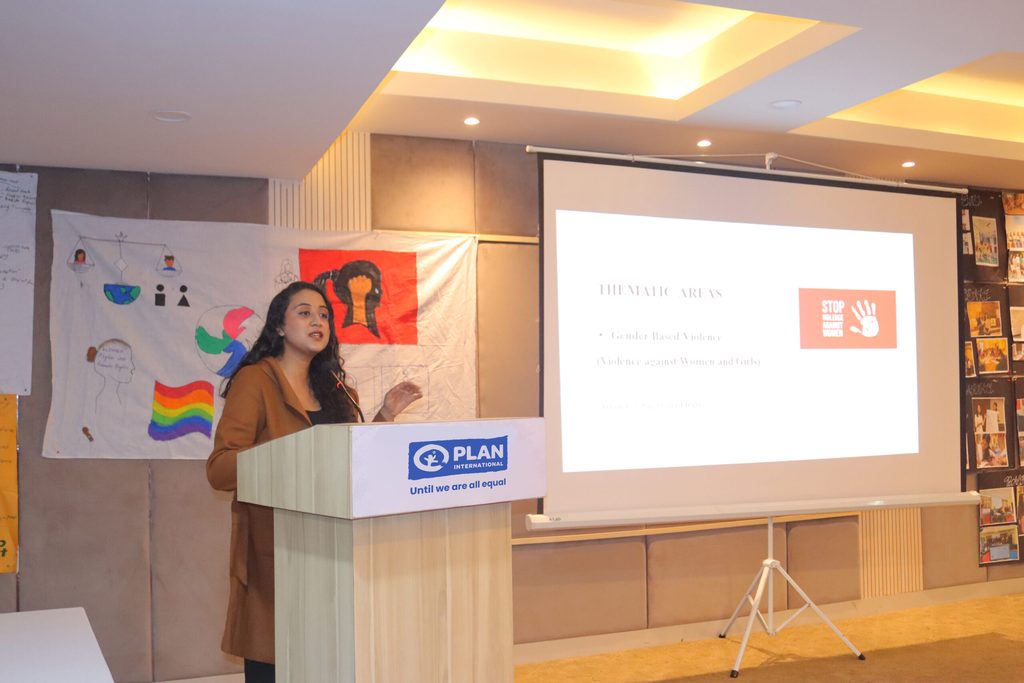
In the heart of Nepal, where dreams are born, I heard the voices of women, tired yet unbreakably strong. Through Lumbini, Sudurpaschim, and Koshi, I walked with them, listened to them, and carried their stories forward. As a young Gen Z immersed in the world of social media, it’s easy to feel detached from complex global issues like gender equality and human rights. However, my journey as a Youth Champion for the Committee on the Elimination of All Forms of Discrimination against Women (CEDAW) shadow reporting process changed everything.
Being selected for this role connected me to the lived realities of women and girls in Nepal in ways I had never imagined. It wasn’t just a learning experience. It was emotional, powerful, and deeply transformative. I found myself not just witnessing change, but becoming part of it.
“It wasn’t just a learning experience. It was emotional, powerful, and deeply transformative. I found myself not just witnessing change, but becoming part of it.”
Rakshya, youth champion
A life changing experience
As a Youth Champion, I had the opportunity to visit 3 provinces: Lumbini, Sudurpaschim, and Koshi, each carrying its unique struggles yet bound together by the common thread of gender inequality. The challenges were stark and heart-wrenching.
In Lumbini, I met women fighting deeply rooted cultural barriers. One woman, a former kamalari, shared her story with such raw honesty that it brought tears to my eyes. Her journey was painful, yet her strength was undeniable. It reminded me that behind every statistic is a life filled with unimaginable strength and resilience.
In Sudurpaschim, I met girls whose dreams of education were crushed by early marriage. Despite their passion to learn and grow, societal norms continued to silence them. Yet, their eyes sparkled with determination, a fierce hope that things could be different.
Koshi, too, revealed countless stories of discrimination, women battling for space and voice in workplaces, homes, and communities. Their resistance, despite decades of gendered bias, moved me profoundly.
The power of consultation
One of the most powerful aspects of this journey was engaging in local consultations. I had never realised how meaningful and transformative dialogue could be. Sitting in community spaces, listening to women, activists, and youth share their truths, taught me that consultation is not just data collection, it is empowerment.
These conversations weren’t just about gathering inputs for a report. They were about recognising people’s lived realities and amplifying voices that are often left unheard. The responsibility to reflect these stories with dignity and urgency in the CEDAW shadow report felt immense, but it was also empowering.
Writing the report helped me grow. I learnt to communicate complex, sensitive issues respectfully and clearly. It sharpened my skills not just in writing, but in empathy, listening, and perspective-taking.
Youth at the centre
This process taught me that youth aren’t just participants, we’re changemakers. We are not too young to lead or influence policies. Youth involvement brought fresh energy, curiosity, and passion to the table. I realised that the change we seek won’t happen tomorrow unless we start today.
Being a Youth Champion meant representing the voices of young people, but it also meant being a bridge between communities and global platforms. The fact that our report will reach Geneva fills me with pride and hope. Hurray! Our voices are reaching the world!
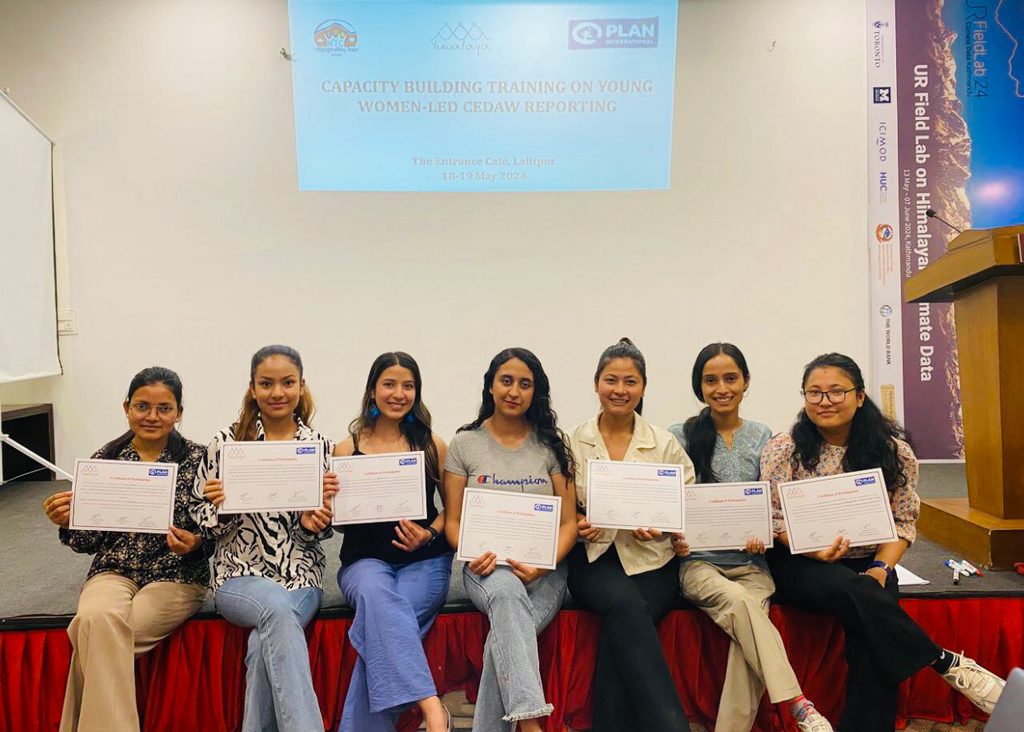
From advocacy to action
Leading workshops on CEDAW reporting during this journey helped me grow into a confident advocate. I learnt how to facilitate dialogue, simplify complex human rights language, and engage young women and marginalised groups in meaningful ways. These workshops weren’t just about raising awareness; they were spaces of empowerment, exchange, and shared learning.
Through these engagements, I came to better understand the socio-economic and cultural barriers different groups face. Their stories shaped my advocacy approach and strengthened my commitment to work for a more inclusive, just, and equal Nepal.
This journey reminded me that the road to gender equality is long and challenging, but every step counts. Every consultation, every report, and every act of advocacy brings us closer to the world we dream of, a world where no woman, girl, or young person is left behind.
For me, being a Youth Champion in the CEDAW shadow reporting process is just the beginning. It’s the start of a lifelong commitment to equality, justice, and collective action.
A journey of gratitude
Looking back, I am overwhelmed with gratitude. To the women who trusted me with their stories. To Plan International Nepal and Yuwalaya for this golden opportunity. To my fellow Youth Champions, your strength, solidarity, and sisterhood were everything. And to our seniors, who guided us every step of the way, thank you for your belief in us.
This experience opened my eyes to the urgent need for gender justice. It taught me that advocacy is not just about speaking, it’s about listening, learning, and standing in solidarity. It reaffirmed my belief that real change begins with empathy and collective action.
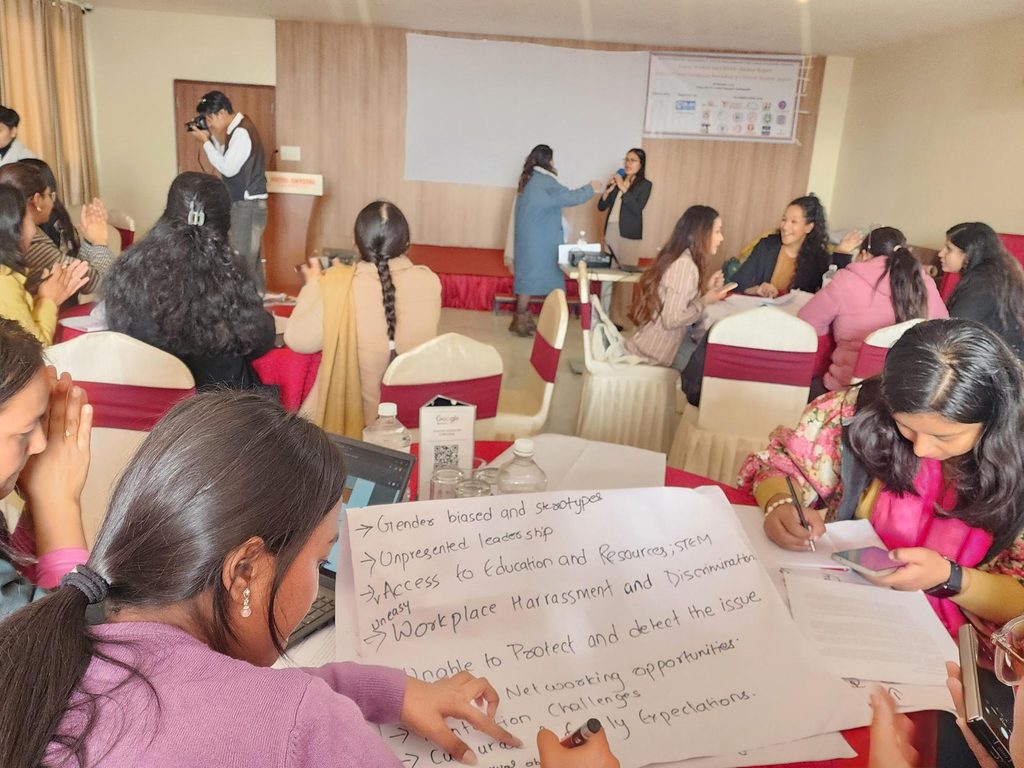
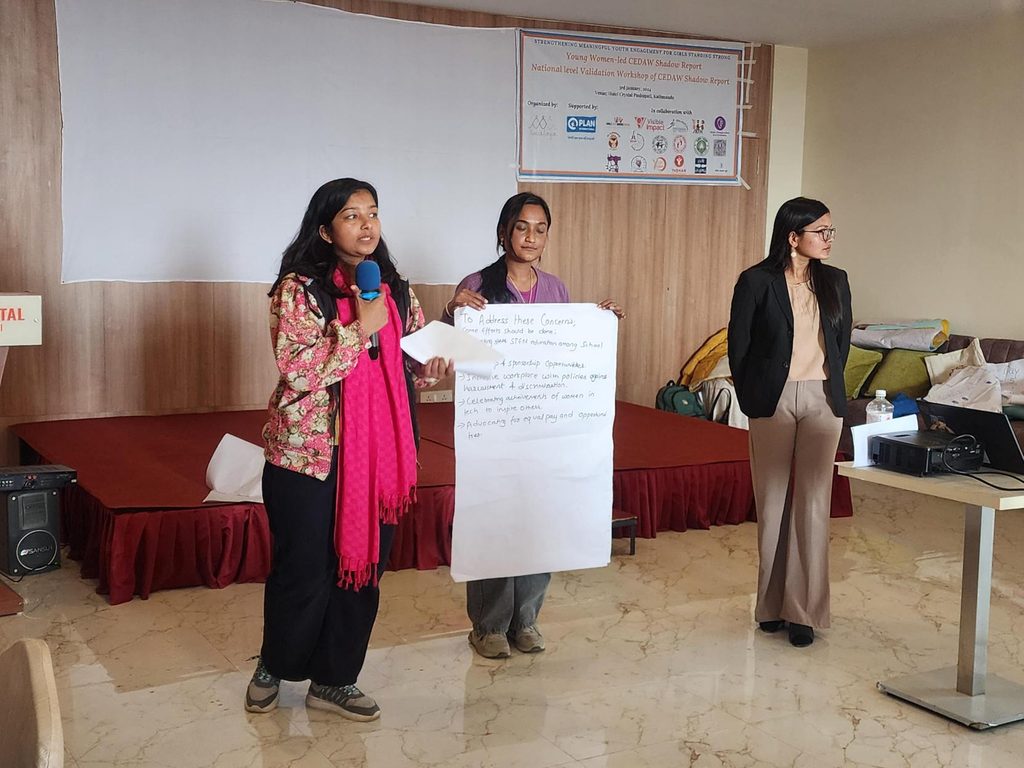

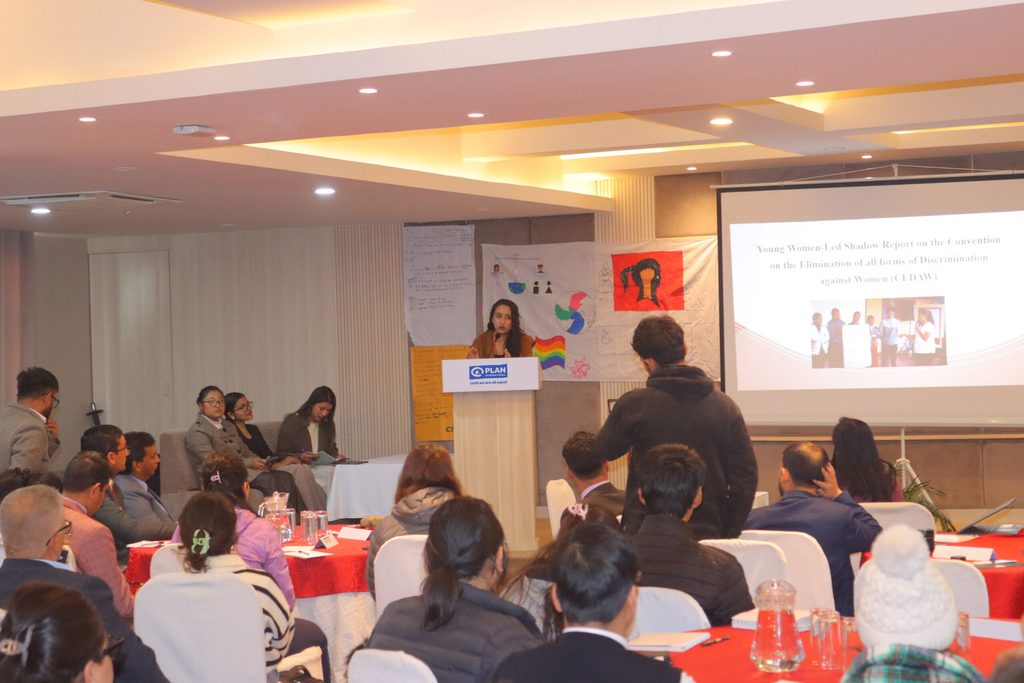
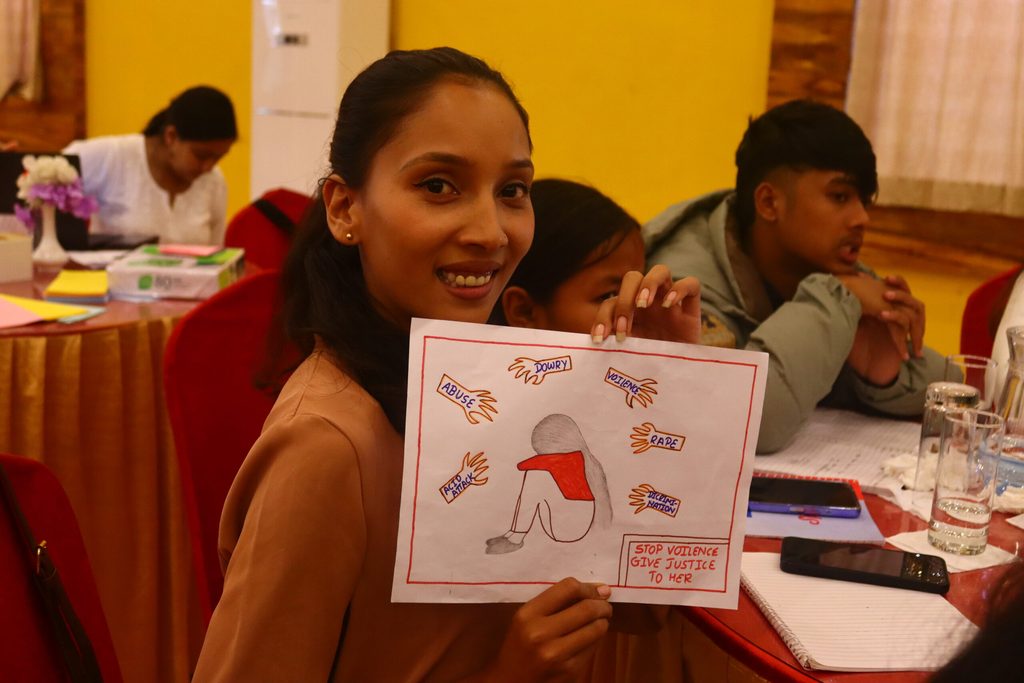
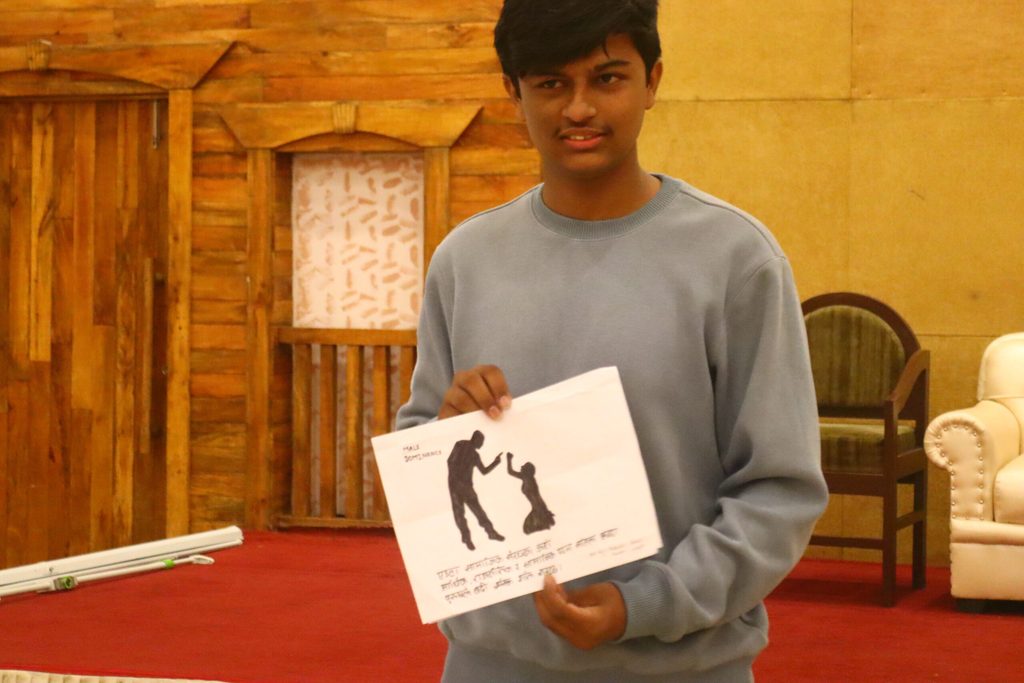
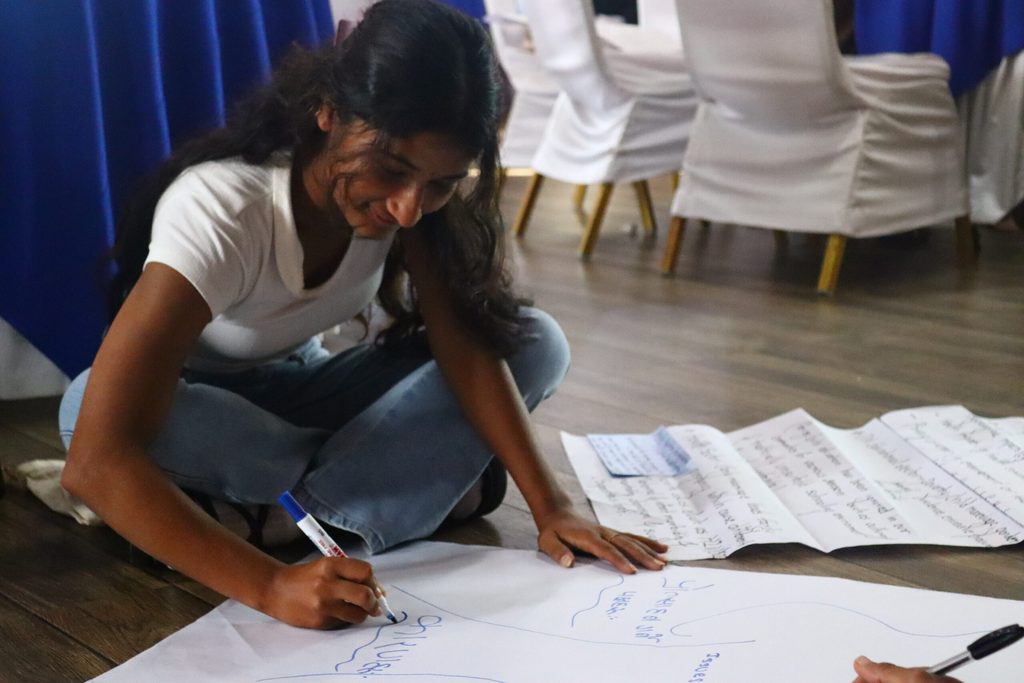
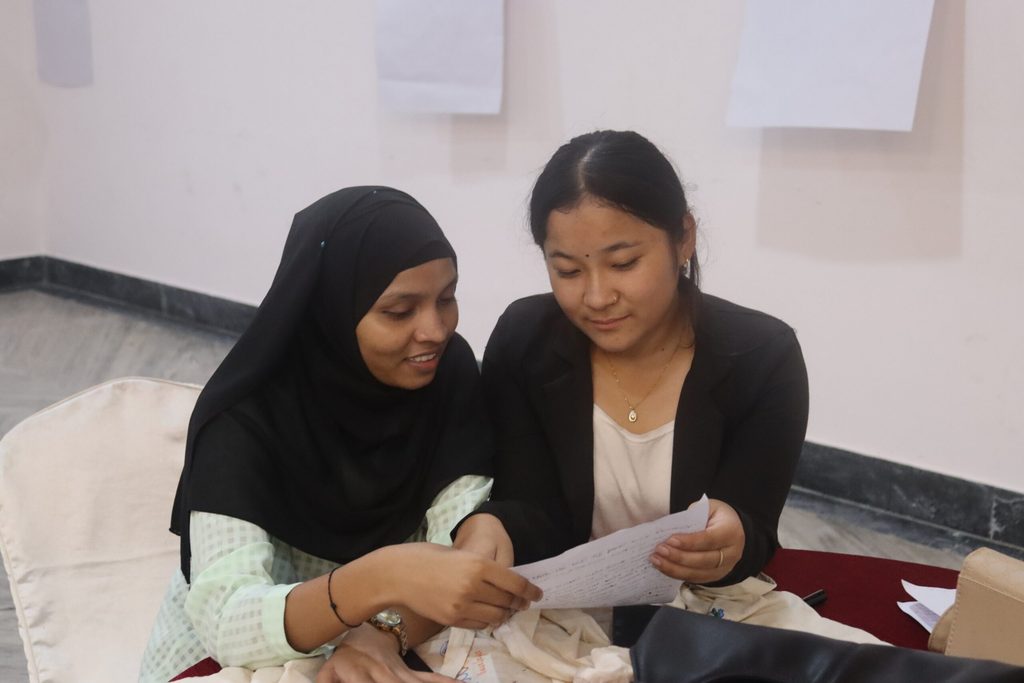
Young women-led CEDAW shadow report submission
Plan International Nepal, in partnership with Yuwalaya, has supported the development and submission of a young women-led shadow report to the Office of the High Commissioner for Human Rights, ahead of Nepal’s review at the 90th CEDAW session in February 2025.
CEDAW is a key international treaty adopted by the UN in 1979, often referred to as the international bill of rights for women. As a signatory, Nepal is required to submit regular reports on its progress. Civil society organisations are invited to submit alternative or “shadow” reports to highlight issues that may be overlooked in the government’s official submission.
This shadow report, the first of its kind in Nepal, led by young women aged 18–29, was developed through a nationwide consultation process and endorsed by 31 youth-led organisations. It documents gender-based discrimination and human rights violations faced by women and girls in Nepal, and calls for stronger action and accountability to advance gender equality.
This initiative marks a significant step in youth-led advocacy and reaffirms Plan International Nepal’s commitment to amplifying young women’s voices in national and global policy spaces.
Categories: Youth empowerment


